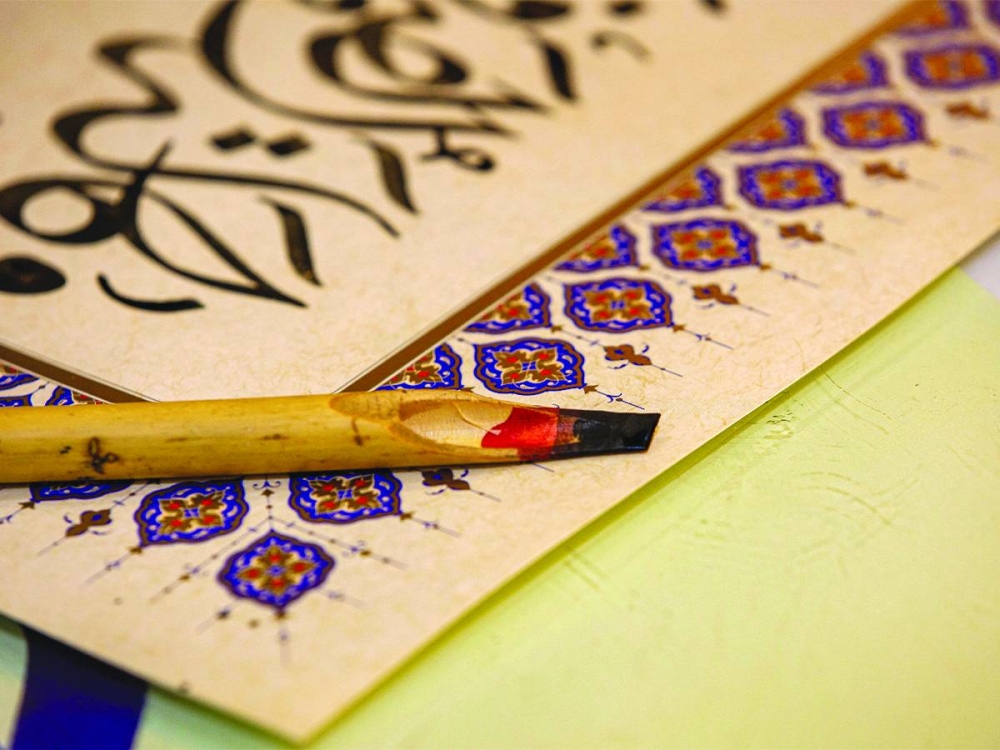Arabisation of science is a crucial part of the nations-led efforts to maintain their cultural identity and technological advancement, however, notwithstanding the formidable challenges these nations encounter, many of them succeeded in enhancing education with their national languages, thereby promoting understanding and generating knowledge.
There are currently no accurate statistics from the UN that identify nations that teach science with their national languages, albeit UN reports indicated that education in native language fosters learning, inclusivity and development, with other reports highlighting that most technologically advanced countries draw on their mother tongue in education, underscoring the importance of leveraging education through national languages to achieve technological and scientific advancements and maintain national identity.
Several experts and academics emphasised to Qatar News Agency (QNA) the feasibility of Arabisation of science, citing quintessential experiences that could be utilised, accordingly, to move forward, stressing that Arabisation is a robust motivation for advancement in the Arab world.
Head of the Arabic Language Department at Qatar University and member of the Scientific Council of the Doha Historical Dictionary of the Arabic Language, Dr Ahmad al-Kubaisi, emphasised that teaching sciences in the Arabic language helps students approach them in a closer way and augments their comprehension, affirming that this method is better than teaching them in a foreign language.
Dr al-Kubaisi underlined that Arabisation of science largely disseminates knowledge among community members, thereby affording them the opportunity to excel in innovation and creativity, noting that this would be inevitable if effective engagement was imperative in generating knowledge and epochal civilisation, pursuing the approach of Islamic civilisation in the early Modern European Renaissance.
A clear example for opting for this Arabisation was the advent of the Arab Renaissance in the early 19th century, which culminated in the establishment of medical, engineering, and agricultural education under Muhammad Ali's rule in Egypt in 1825, alongside Lebanon where teaching methods were replaced with the Arabic language, but stopped short due to the Western colonisation that flighted the Arabic language and replaced it with English, highlighted Dr al-Kubaisi.
He added that the call for Arabisation of science is consistently ongoing and is a massive action that requires close collaboration among professional linguists and scientists, followed by the provision of essential material support to pull off, noting that many institutions for Arabisation exist in Morocco and Egypt.
In 1980, the Council of Arab Health Ministers established the Arabisation Centre for Medical Science (ACMLS), stemming from their belief in the significance of teaching medicine in Arabic. with the Kuwait Foundation for the Advancement of Sciences making significant contributions by Arabising the American journal of sciences, he pointed out.
Dr al-Kubaisi highlighted that many world countries adopted the teaching of sciences in their mother tongue, such as Turkiye, Russia, China, Korea, Japan and Italy, which offered successful experiences and effective contribution to technology, scientific research and industry to achieve further advancement and be at the vanguard of developed nations.
Secretary-General of the Kuwait-based Arab Centre for Authorship and Translation of Health Science in Kuwait, Dr Marzouk Youssef al-Ghanim, highlighted that the centre is run by the Arab League. It was established in 1980 with the objective of spurring translation in Arabic language, as well as health sciences.
The centre's philosophy is centred on Arabisation of science, especially medicine, an Arab request that transcends professionals to reach Arab erudite segments who boast of their Arabic language which is capable of evolving and accurately expressing sciences, Dr al-Ghanim pointed out, indicating that the Arabic language would play a pivotal role in wielding the torches of enlightenment and preparing a hopeful civilisational project, if human potential, wealth and economic capabilities were added to advance the nation.
He underlined that Arabic has dynamically pushed the path toward human civilisation, being as the language of science and culture, thereby harnessing its ancient cultures and ultimately becoming creative by imparting the gist of its experiences to Europe in a variety of knowledge fields.
Dr al-Ghanim emphasised that the centre stands ready to hold cultural seasons to shine a spotlight on Arabic language, as well as Arabization of medicine, with the center consistently publishing a range of releases, which culminated in 714 and 238 books.
He indicated that the center successfully surmounted numerous hurdles, but its unwavering efforts for Arabisation require decisions at the political and pedagogical levels carrying hopes for the comprehensive application of Arabisation in universities.
Secretary-General of the Egyptian Association for the Arabisation of Sciences and Professor of computer engineering at Al-Azhar University, Dr Mohamed Younis al-Hamlawi, emphasises that the rapid evolution in a variety of science realms prompts the need for bridging the gap with the developed countries to reach the pinnacle of technological success.
To achieve that, science must be taught in Arabic, since university teachers are vested with the responsibility of teaching sciences in Arabic language, stemming from their constitutional, legal and moral duties, as the engine that drives public education, followed by responsibilities of governments, civil society organisations, intellectuals and media practitioners, he highlighted.
Dr al-Hamlawi stressed that the significant goal of Arabisation is to advance communities, in terms of culture and material to strengthen cohesion and unify products with one language. He highlighted that research will be directed toward addressing the community problems, instead of leveraging the skills of foreign teachers, outlining that Arabisation will not be in conflict with learning foreign languages.

